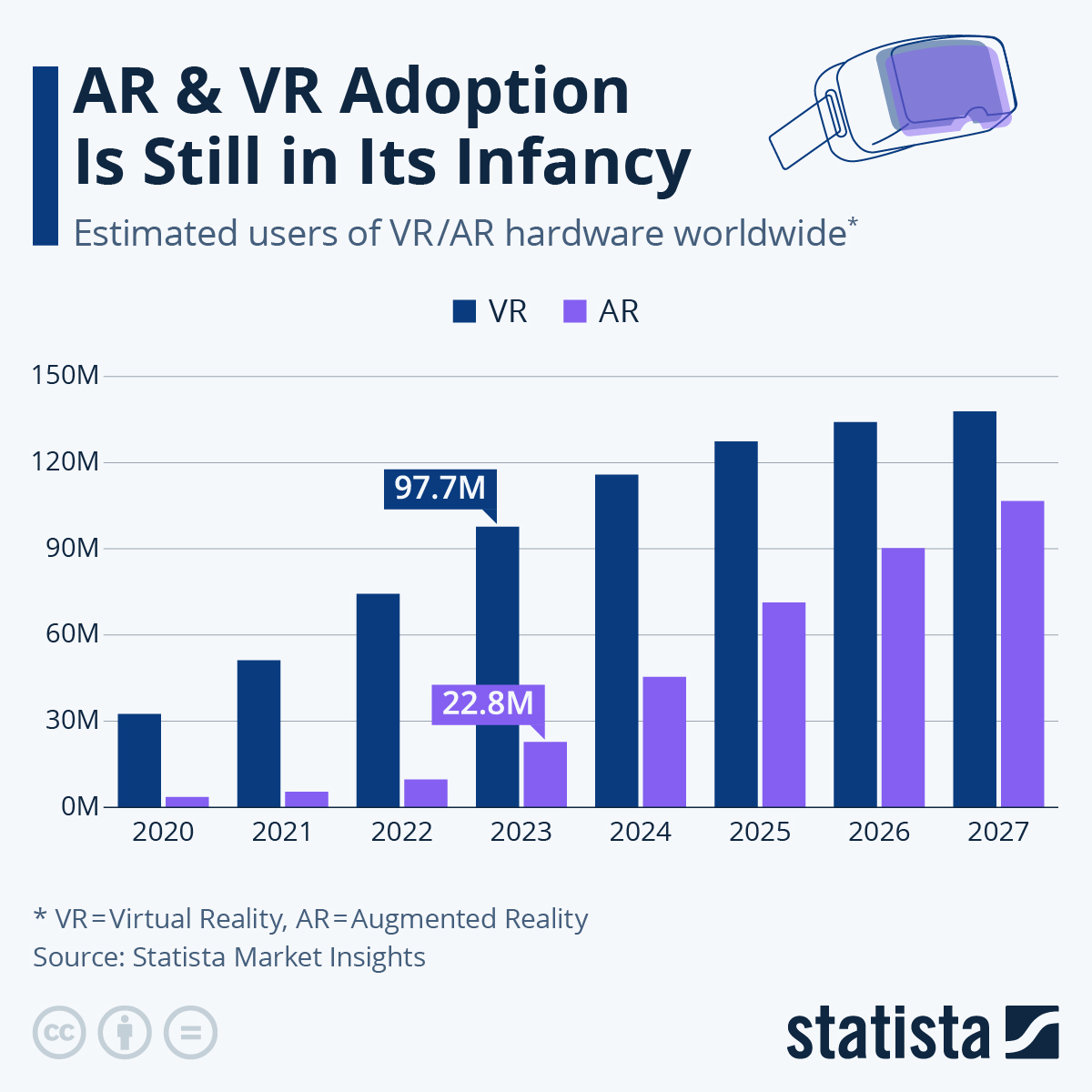“We believe VR devices will help usher in the next computing platform—becoming as ubiquitous as laptops and tablets are today—and that people will use them in their everyday lives to access the metaverse,” the company wrote in its announcement of the $1,499 Meta Quest Pro headset. And while Meta has already invested billions in Mark Zuckerberg’s vision of the metaverse, so far it remains just that: a vision that has yet to come to life.
According to estimates from Statista’s Advertising & Media Outlook, users of AR and VR devices are still few and far between, with growth projections until 2027 nowhere near the scale that would make mixed reality “the next computing platform”, at least for now. Statista estimates that 74 million will be using VR hardware this year, with AR users just short of 10 million worldwide. By 2027, both AR and VR are expected to have surpassed 100 million users worldwide, but that’s still a longshot from the billions of smartphone users across the planet.

No comments:
Post a Comment